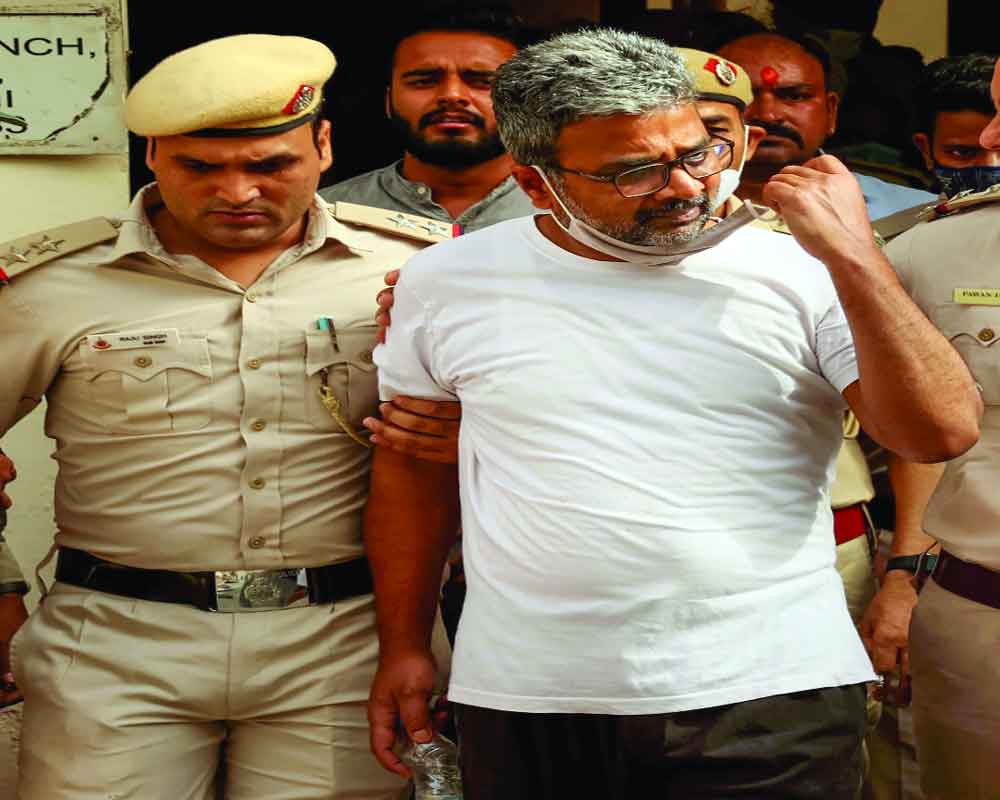A history professor with Delhi University’s Hindu College, Ratan Lal, who was arrested on Friday night over a social media post that appeared to question claims of a shivling found inside Varanasi’s Gyanvapi mosque complex, was granted bail on Saturday.
The court has asked to furnish a bond of Rs 50,000 and surety on the like amount. It ordered Lal to “strictly refrain from posting any social media posts or interviews” regarding the controversy.
Meanwhile, left-affiliated All India Students Association (AISA) activists staged a protest outside Delhi University’s Arts Faculty against the arrest of Lal. The student activists held placards that read: “Stop attack on our teachers”, “Stop curbing democratic voices” and “Release professor Lal”.
Granting bail to Lal, Tis Hazari court Chief Metropolitan Magistrate Sdihartha Malik said, “It is true that the accused did an act which was avoidable considering the sensibilities of persons around the accused and the public at large.”
However, the post, though reprehensible, does not indicate an attempt to promote hatred between communities.”
The court observed that the police’s anxiety to maintain peace and order leading to Lal’s arrest could be understood, but “the court has to employ higher standards while considering the need to send a person to custody.” It rejected the Delhi Police request for 14 days for judicial custody to further investigate the matter as it has received six complaints against him so far.
Calling the post a failed attempt at satire, the court said, “The feeling of hurt felt by an individual cannot represent the entire group or community and any such complaint regarding hurt feelings has to be seen in its context considering the entire spectrum of facts/circumstances.”
Lal was arrested under Indian Penal Code sections 153A (promoting enmity between different groups on grounds of religion, race, place of birth, residence, language, etc., and doing acts prejudicial to maintenance of harmony) and 295A (deliberate act to outrage religious feelings of any class by insulting its religion) by the Delhi Police.
According to the bail order, the post “relates to a controversy relating to Gyanvapi Mosque and the alleged findings as being circulated on social media”.
The professor “made a remark on a structure which is claimed by different groups as different religious symbols, including a claim regarding discovery of a shivling”.
The court observed that the accused’s post is “speculative in nature”.
Malik pointed out that the controversy relates to a report - of the commissioners appointed to conduct a video survey in the mosque by a Varanasi court - which is not in the public domain, and that the alleged findings in the report have not been authenticated at this time.
“When considered in the aforesaid context, the post of the accused may appear to be a failed attempt at satire regarding a controversial subject which has backfired, resulting in the present FIR,” the order reads.
Malik noted that he himself is a proud follower of Hinduism in his personal life and may call the post distasteful and unnecessary, but for someone else, this may not lead to any negative feelings.
Seeking for judicial custody, the Delhi Police argued that it was not expected from such an educated person. The police claimed that the professor was also defending the posts in YouTube videos.
Lal’s counsel called his arrest an “abuse of law”. “Jails will be thronged by intellectuals,” he said. There was no case here, he said adding that the FIR should also not have been filed. He also demanded a departmental enquiry against the police for directly arresting him, without issuing any notice.
“It’s electronic evidence. If notice was issued, the evidence could have been deleted within a click,” the police argued.


























